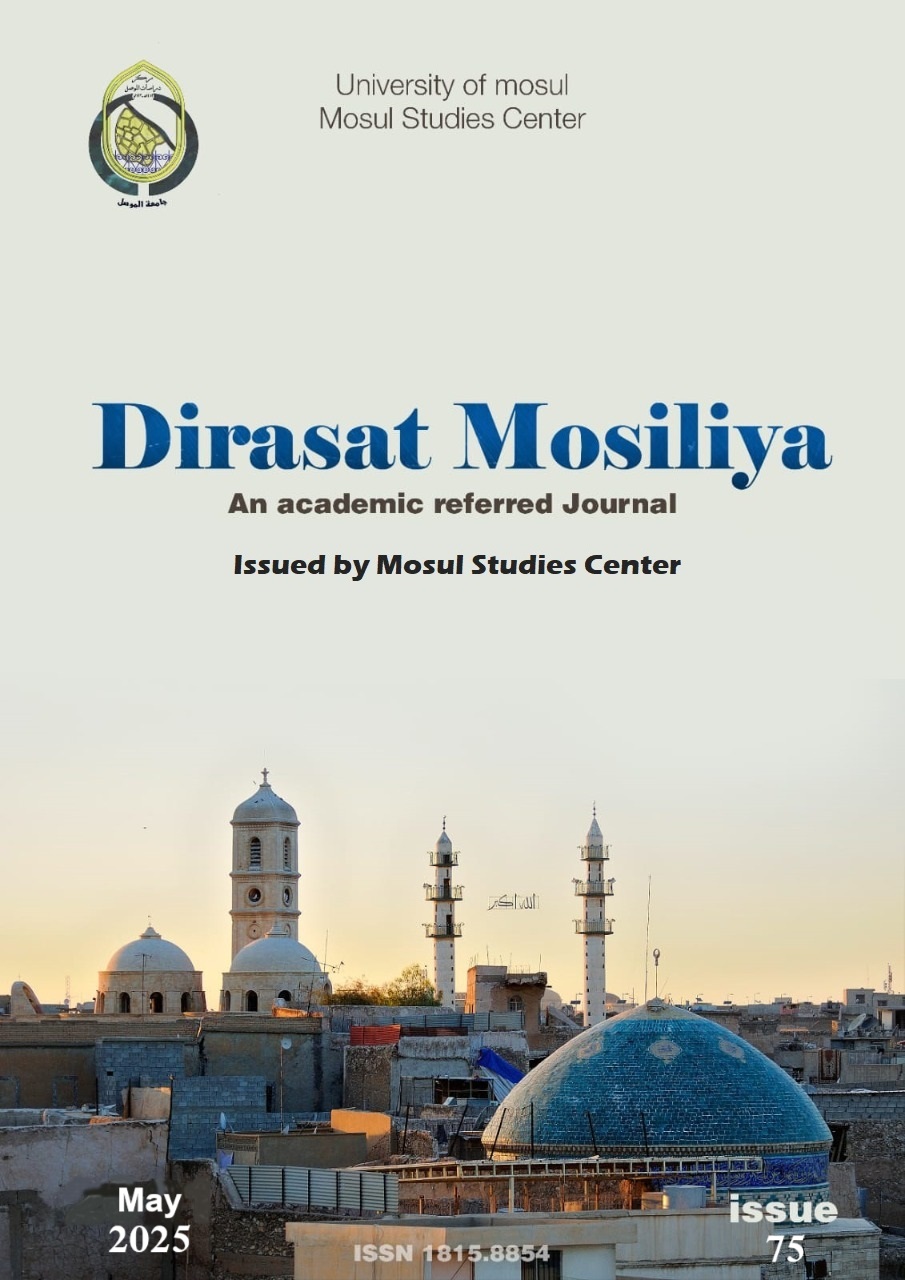Dowries in the Governing Families in Mosul (between the Fourth and Seventh Centuries AH)
Abstract
Dowries are regarded as rights imposed on husbands and as a social custom resulting from intermarriages. We did not find any book in the Arab heritage books dealing with dowries and what is related to them, while our information about them came largely from books of general histories and sometimes from translated books or books of jurisprudence. The research deals with dowries in the governing families in Mosul between the fourth and seventh AH centuries / the tenth and thirteenth centuries AD, and their impact and dimensions on the relations between those ruling families and the neighboring powers, such as the intermarriages of the Hamdani family with the Marwanid State (380-478 AH/989-1085 AD), and the Zangi family with the State the Ayyubids (567-648 AH / 1174-1250 AD), and perhaps the most important results of the research are that these dowries were the product of projects of political marriage and mutual gains between the rulers of Mosul (the Hamdanids, the Uqilis, the Seljuk princes, and the Zangid Atabegs) together with their neighboring countries in the Euphrates Island and the Levant. It is noted that there is an exaggeration in the amount of dowries in these families, according to what is mentioned by some historical sources.




